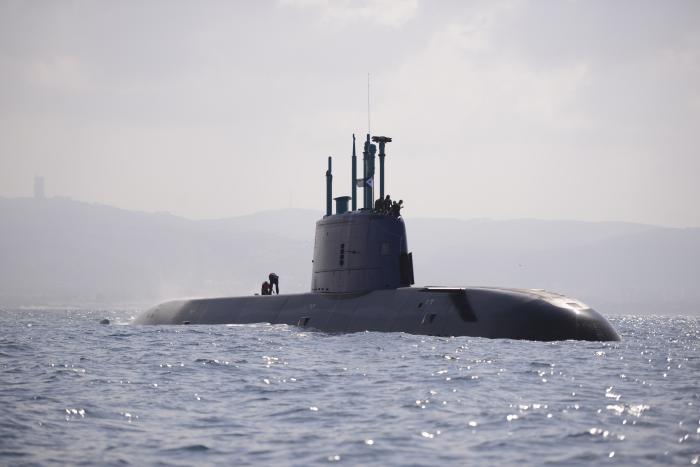Do you know what it means to find yourselves face to face with a madman? Madmen, lucky folk, construct without logic, or rather with a logic that flies like a feather. (Luigi Pirandello, Henry IV)
In the study of international relations and military strategy, decisional irrationality is not the same as madness. Nonetheless, Italian playwright Luigi Pirandello’s unintended warning for strategic scholars and policy-makers can still be worth serious consideration. This is because “ordinary” irrationality and full-scale madness could have markedly common and conspicuous effects upon any country’s national security decision-making processes.
For Israel, a state smaller than America’s Lake Michigan, understanding and anticipating these more-or-less calculable effects could have existential importance.
To begin, in normal strategic parlance, “irrationality” references a decisional foundation wherein national self-preservation is not the very highest or ultimate preference. It follows that a prospectively irrational decision-maker in Damascus or Tehran need not necessarily be “mad” to be starkly problematic for Jerusalem, only presumptively more concerned about certain preferences or values than collective self-preservation. A plausible example would be preferences for implementing certain religious or spiritual outcomes above even national survival. Of course, identifying the specific criteria or correlates of such survival could be irremediably subjective and effectively indecipherable.
Whether any particular adversary were deemed expressly irrational or altogether “mad,” Israeli military planners would have to input a generally similar decisional calculation or premise. This is that the adversary might not be suitably deterred from launching a military attack by Israeli threats of retaliatory destruction, even where such threats would be both fully credible and expectedly massive. Significantly, any such prospective failure of Israeli military deterrence could include both conventional and nuclear retaliatory threats.
In fashioning their country’s still-“ambiguous” nuclear strategy, Israel’s military planners must always include a mechanism to determine whether a pertinent adversary will likely be rational or irrational. Operationally, this means ascertaining whether the identifiably relevant foe will value its collective survival (either as a state, or as an organized terror group) more highly than any other preference, or combination of preferences. Further, this early judgment must always be based upon sound analytic principles, and should never be affected in any way simply by what the analysts might “want to believe.”
A corollary obligation here, depending in large part upon this prior judgment concerning expected enemy rationality, will be for Israeli planners to assess whether a properly nuanced strategy of “pretended irrationality” could enhance Israel’s nuclear deterrence posture.
To be sure, Israel’s enemies include both state and sub-state foes, whether singly, or in various conceivable forms of collaboration. Such forms could be “hybridized” in different ways between state and sub-state adversaries. Moreover, in dealing with Israel, each recognizable class of enemies could sometime choose to feign irrationality. This would represent a potentially clever strategy to “get a jump” on Israel in any expected or already-ongoing competition for “escalation dominance.”
Naturally, any such calculated pretense could also fail, perhaps even calamitously.
There is something else. On occasion, these very same enemies could “decide,” either consciously or unwittingly, to actually be irrational. In any such bewildering circumstances, it would become incumbent upon Israeli planners to capably assess which particular form of irrationality – pretended or real – is underway. Thereafter, these planners would need to respond with a dialectically orchestrated and optimally counterpoised set of reactions.
By definition, any instance of enemy irrationality would value certain specific preferences (e.g., presumed Islamic religious obligations, or personal and/or regime safety) more highly than collective survival. For Israel, the grievously threatening prospect of a genuinely irrational nuclear adversary is reasonably still most worrisome with regard to Iran. There is, in other words, little reason to believe that either the original 14 July 2015 Vienna Agreement or the US president’s subsequent unilateral American withdrawal from the JCPOA will have any tangibly inhibiting effect on Iranian nuclearization. Apropos of such defensible doubts, it is especially worth remembering seventeenth-century English philosopher Thomas Hobbes’ classic warning in Leviathan: “Covenants, without the sword, are but words….”
How should Israel best proceed? In narrowly military terms, the very best option could still seem to be some sort of preemption; that is, a defensive first-strike directed against Iran’s appropriate hard targets. Yet, it is already very late for launching any operationally cost-effective preemption against Iran, and – even if it could somehow be properly defended in law as “anticipatory self-defense” – any such action would plainly come at a much too-substantial human and political cost.
In essence, all this now implies a primary obligation, for Israel, to focus instead on steady enhancements to its nuclear deterrence posture. Accordingly, Jerusalem should continue to bear in mind this posture’s utterly core focus on prevention rather than punishment. Using its own presumed nuclear forces for vengeance rather than deterrence would assuredly miss the point. Arguably, in fact, any such Israeli use, even as a residually default option, would be not only purposeless, but also irrational.
Always, Israel’s nuclear deterrent must be recognizably backed up by robust systems of active defense (BMD), especially if there should be any good reason to fear an irrational nuclear adversary. Although well-known that no system of active defense can ever be entirely “leak-proof,” there is still reason to suppose that certain BMD deployments could help safeguard both Israeli civilian populations (soft targets) and Israeli nuclear retaliatory forces (hard targets). This means, inter alia, that Arrow and relevant corollary systems (e.g., Iron Dome and David’s Sling) must indefinitely remain a necessary complement to the Jewish State’s nuclear deterrence posture.
“Everything is very simple in war,” says Clausewitz in On War, “but the simplest thing is still difficult.” To progress in its most vital national security obligations, Israel’s military planners must more expressly identify the prioritized goals of the country’s nuclear deterrence posture. Before any rational adversary of Israel could be suitably deterred by an Israeli nuclear deterrent, that enemy would first need to believe that Israel had capably maintained both the capacity to launch appropriate nuclear reprisals for relevant forms of aggression (nuclear and perhaps even non-nuclear), and the will to undertake any such uniquely consequential firing.
In certain more perplexing matters involving an expectedly irrational nuclear enemy, successful Israeli deterrence would then need to be based upon distinctly credible threats to enemy values other than national survival.
Israel will also need to demonstrate, among several things, the substantial invulnerability of its own nuclear retaliatory forces to any enemy first strike aggressions. More precisely, it will be in Israel’s long-term survival interests to continue to commit to assorted submarine-basing nuclear options. Otherwise, as it is easy to contemplate, Israel’s land-based strategic nuclear forces could sometime present invitingly to a potentially existential enemy as too-vulnerable.
Whether or not Israel should continuously proceed to even more explicit submarine-basing of its presumed nuclear retaliatory forces, Jerusalem could still benefit from a carefully controlled and incrementally phased end to “deliberate nuclear ambiguity.” Without such a calculated termination to the country’s “bomb in the basement,” there could eventually arise serious enemy doubts about Israel’s nuclear deterrent, troubling questions that could prove even more persuasive than Israel’s perceived willingness and capacity to make good on its still only implicit nuclear retaliatory threats.
Looking ahead, Israel will have to rely increasingly on a multi-faceted doctrine of nuclear deterrence. In turn, specific elements of this “simple but difficult” doctrine could soon need to be rendered less “ambiguous.” This complex and nuanced modification will imply an even more determined focus on prospectively rational and irrational enemies, including, again, both national and sub-national foes.
To deal most successfully with its presumptively irrational or non-rational enemies, Israel will need to compose a more-or-less original strategic “playbook.” Here, it may even become necessary for Israel to consider, at least on occasion, feigning irrationality itself. In such cases, however, it would be important for Jerusalem not to react in any ad hoc or “seat-of-the-pants” fashion to each and every new strategic challenge, but rather to derive or extrapolate all specific policy reactions from a carefully pre-fashioned strategic nuclear doctrine.
Without such a thoughtful doctrine as guide, pretended irrationality could quickly become a “double-edged sword,” effectively bringing more rather than less survival risk to Israel.
Years ago, when he was Minister of Defense, General Moshe Dayan had instructed: “Israel must be seen as a mad dog, too dangerous to bother.” Then, Dayan may already have seized upon an instructive and timely metaphor. Clausewitz, who had much earlier favored recognizable “audacity” in war, would have agreed.
There is one penultimate but still vital observation. It is improbable, but not inconceivable, that certain of Israel’s principal enemies would be neither rational nor irrational, but mad. While irrational decision-makers would already pose special problems for Israeli nuclear deterrence – because these decision-makers would not value collective survival more highly than any other preference, or combination of preferences – they might still be rendered susceptible to alternate forms of deterrence.
For example, like rational decision-makers, they could still maintain a fixed, determinable, and “transitive” hierarchy of preferences.
This means, at least in principle, that “merely” irrational enemies could still be successfully deterred.
Mad or “crazy” adversaries, on the other hand, would have no such calculable hierarchy of preferences, and would therefore not be subject to any strategy of Israeli nuclear deterrence. Although it would likely be worse for Israel to have to face a mad nuclear enemy, than a “merely” irrational one, Jerusalem would have no foreseeable choice in this matter. This means that Israel, like it or not, will need to maintain, perhaps even indefinitely, a “three-track” system of nuclear deterrence and defense, one track each for its identifiable adversaries that are presumed (1) rational; (2) irrational; or (3) mad.
For the plainly unpredictable third track, special plans will also be needed for undertaking certain presumptively indispensable preemptions, and, simultaneously, for certain corresponding efforts at ballistic missile defense.
Naturally, there could be no assurances that each “track” would always present exclusively of the others. This means, significantly, that Israel could sometimes have to face fully intersecting or overlapping tracks, and that these simultaneities could also be synergistic.
There is one genuinely final observation. Even if Israel’s military planners could reassuringly assume that pertinent enemy leaderships were fully rational, this would say nothing about the accuracy of the information used by these foes in making their calculations. Always, it must not be forgotten, rationality refers only to the intention of maximizing certain designated preference or values. It says nothing at all about whether the information being used is actually correct or incorrect.
Fully rational enemy leaderships could still commit serious errors in calculation that would sometime lead them to a nuclear confrontation or a nuclear war. There are also some related command and control issues that could impel a perfectly rational adversary or combination of adversaries (both state and sub-state) toward embarking upon various risky nuclear behaviors. It follows, prima facie, that even pleasingly “optimistic” assessments of enemy leadership decision-making would not reliably preclude catastrophic outcomes. For Israel, understanding full well that no scientifically accurate judgments of probability can ever be made about starkly unique events (by definition, any nuclear exchange would be sui generis or precisely such a unique event), the best lessons for Israel should favor determined prudence and deliberate “humility.”
Now, for Jerusalem, in the largely-unpracticed nuclear age, ancient Greek tragedy warnings about excessive leadership pride are not only still relevant, they are more important than ever.
For Israel, left unheeded, these classical warnings about hubris could sometime bring forth once-literally unimaginable spasms of “retribution.” The Greek tragedians, after all, were not yet called upon to reason specifically about nuclear decision-making. None of this is meant to build gratuitously upon Israeli fears or apprehensions, but rather to remind that national security planning remains a stunningly complex struggle of “mind over mind,” not just “mind over matter.”
This article was first published at Israel Defense.


























